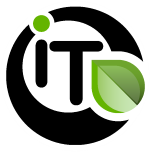Welcome
Welcome to the Online Consultation on UNESCO Institute of Statistics Commissioned Project on Developing a global framework of reference on digital literacy skills for SDG indicator 4.4.2: Percentage of youth/adults who have achieved at least a minimum level of proficiency in digital literacy skills.
Thank you for accessing this page to review use case examples and the draft executive summary from the Digital Literacy Global Framework (DLGF) draft developed by the CITE Research Team (PI: Professor Nancy Law; co-Is: Professor Jimmy de la Torre and Dr Gary Wong; Research Officer: Mr David Woo).
Introduction
UNESCO and UN member states are concerned about meeting Sustainable Development Goals (SDGs). SDG 4.4 aims to, “substantially increase the number of youth and adults who have relevant skills, including technical and vocational skills, for employment, decent jobs and entrepreneurship,” and one of its thematic indicators, 4.4.2, is “Percentage of youth/adults who have achieved at least a minimum level of proficiency in digital literacy skills.” The UNESCO Institute of Statistics’ (UIS) Global Alliance to Monitor Learning (GAML) noted that no globally agreed definition of digital literacy exists, and the need for a framework for digital literacy that is relevant for different country contexts, and remains so as technology and its use in the society changes over time.
UIS GAML commissioned the Centre for Information Technology in Education (CITE) at the University of Hong Kong for the project, Developing a global framework of reference on digital literacy skills for SDG indicator 4.4.2. The goal of this project is to propose a definition and a global competence framework of digital literacy skills for indicator 4.4.2, which can be used to guide the monitoring, assessment and further development of digital literacy in a way that is sensitive to different developmental contexts. We have conducted three empirical studies to develop the first draft framework: (1) a review of existing cross-national and national digital literacy frameworks, including the European Commission’s Digital Competence Framework for Citizens (Digcomp 2.1); (2) an analysis of the digital literacy skills demonstrated in digital technology use in major economic sectors, with a major focus on developing countries; and (3) an in-depth consultation to seek experts’ views on the appropriateness and use of the framework. An executive summary of the proposed framework can be found on the project website. The draft DLGF report can be downloaded from here.
Online Consultation
We have finished conducting an online consultation, the purpose of which is to seek experts’ feedback on the competence areas and competences in the proposed DLGF, the pathway mapping methodology, and some information about you and your organization. If you are interested in learning more about the DLGF and in the online consultation, please

